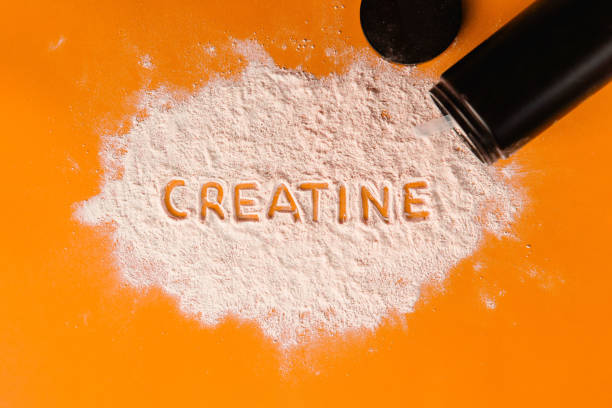Creatine has long been a staple in the supplement regimens of athletes, bodybuilders, and fitness enthusiasts worldwide. Renowned for its ability to enhance strength, power, and muscle mass, creatine is one of the most extensively researched supplements in the sports nutrition industry. However, despite its proven benefits, concerns about potential side effects, including digestive issues such as constipation, persist among some individuals. In this comprehensive guide, we’ll delve into the relationship between creatine supplementation and constipation, separating fact from fiction and providing evidence-based insights to help you make informed decisions about your supplement regimen.
Understanding Creatine
What is creatine?
Creatine is a naturally occurring compound found primarily in meat and fish, as well as synthesized in small amounts by the human body. It plays a crucial role in energy metabolism, particularly during short-duration, high-intensity activities like weightlifting and sprinting.
How does creatine work in the body?
Upon ingestion, creatine is converted into phosphocreatine, a high-energy molecule stored in muscles. During intense physical exertion, phosphocreatine donates its phosphate group to adenosine diphosphate (ADP), regenerating it into adenosine triphosphate (ATP), the primary energy currency of cells. This rapid ATP regeneration enables sustained muscle contraction and performance.
Sources of creatine
While small amounts of creatine can be obtained from dietary sources like meat and fish, many athletes opt to supplement with creatine monohydrate, the most studied and effective form of creatine supplementation.
Benefits of Creatine
Improved strength and power
Numerous studies have demonstrated that creatine supplementation can significantly increase strength and power output, making it a popular choice among strength athletes and powerlifters.
Enhanced muscle growth
In addition to its performance-enhancing effects, creatine has been shown to stimulate muscle protein synthesis and promote muscle hypertrophy, leading to greater gains in lean body mass over time.
Increased exercise performance
By replenishing ATP stores and delaying fatigue during high-intensity exercise, creatine can improve overall exercise performance and recovery, allowing athletes to train harder and longer.
Potential Side Effects of Creatine
Water retention
One common side effect of creatine supplementation is transient water retention, which may cause temporary weight gain but is not associated with any serious health risks.
Digestive issues
While relatively rare, some individuals may experience digestive issues such as bloating, cramping, and diarrhea when initiating creatine supplementation.
Kidney stress
Contrary to popular belief, extensive research has shown that creatine supplementation does not pose any significant risk to kidney health in healthy individuals.
Addressing Common Concerns
Does creatine cause dehydration?
Contrary to popular myth, creatine supplementation does not cause dehydration when consumed as directed and accompanied by adequate fluid intake.
Can creatine make you gain weight?
While creatine may initially cause a slight increase in body weight due to water retention, this is typically transient and does not reflect actual fat gain.
Is creatine safe for long-term use?
Extensive research spanning several decades has consistently demonstrated the safety and efficacy of creatine supplementation for long-term use in healthy individuals.
Does Creatine Cause Constipation?
Debunking misconceptions
Despite anecdotal reports suggesting a link between creatine and constipation, scientific evidence does not support a direct causal relationship between creatine supplementation and digestive issues such as constipation.
Understanding the relationship between creatine and constipation
While creatine itself is unlikely to cause constipation, individual responses to creatine supplementation may vary based on factors such as hydration status, diet, and preexisting digestive conditions.
Factors Influencing Digestive Health
Diet and hydration
Maintaining a balanced diet rich in fiber and staying adequately hydrated can help mitigate the risk of constipation while taking creatine supplements.
Individual tolerance
Like any supplement, individual tolerance to creatine may vary, and some individuals may be more prone to digestive issues than others.
Preexisting digestive conditions
Individuals with preexisting digestive conditions such as irritable bowel syndrome (IBS) may be more susceptible to gastrointestinal discomfort when initiating creatine supplementation.
Research Studies on Creatine and Digestive Health
Summary of relevant scientific studies
A comprehensive review of the literature reveals a lack of evidence linking creatine supplementation to constipation or other significant digestive issues.
Findings regarding constipation and creatine supplementation
Studies investigating the effects of creatine supplementation on digestive health have generally found no significant increase in constipation or gastrointestinal discomfort compared to placebo.
Practical Tips for Avoiding Constipation While Taking Creatine
Hydration is key
Ensuring adequate fluid intake is essential for preventing dehydration and maintaining optimal digestive health while supplementing with creatine.
Gradual dosage increase
Starting with a lower dosage and gradually increasing it over time can help minimize the risk of digestive discomfort associated with creatine supplementation.
Balanced diet rich in fiber
Consuming a diet high in fiber from fruits, vegetables, and whole grains can promote regular bowel movements and alleviate constipation symptoms.
Case Studies and Personal Experiences
Real-life anecdotes from individuals using creatine supplements
While anecdotal reports of digestive issues associated with creatine supplementation exist, they are typically rare and may be attributable to other factors.
Insights into their digestive health while on creatine
Many individuals report no significant digestive issues when supplementing with creatine, particularly when following recommended dosages and staying hydrated.
Expert Opinions and Insights
Perspectives from nutritionists and healthcare professionals
Leading experts in sports nutrition and gastrointestinal health agree that creatine supplementation is unlikely to cause constipation when used as directed and accompanied by proper hydration and nutrition.
Recommendations for creatine users concerned about constipation
For individuals experiencing constipation or other digestive issues while taking creatine, consulting with a healthcare professional can help identify potential underlying causes and appropriate solutions.
Conclusion
In conclusion, the notion that creatine supplementation causes constipation is largely unfounded, with scientific evidence suggesting that any digestive issues associated with creatine are typically mild and transient. By following recommended dosages, staying adequately hydrated, and maintaining a balanced diet, individuals can minimize the risk of constipation while enjoying the performance-enhancing benefits of creatine supplementation.

